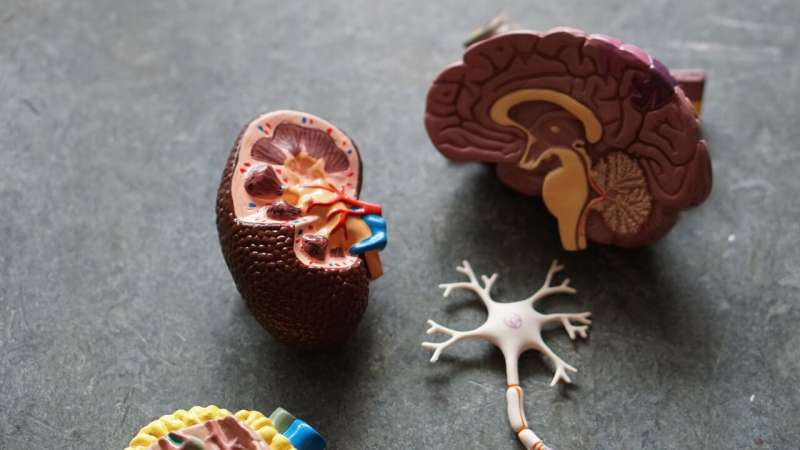Scientists seek to shift treatment of kidney damage caused by cancer drug

In a new paper accepted for publication in the Journal of the American Society of Nephrology, researchers at Yale School of Medicine share findings that indicate that, for the first time, there is a potential renal targeted treatment for kidney injury caused by cisplatin, a widely used anti-cancer drug. One in four patients treated with cisplatin develop chronic kidney disease. The Yale researchers found that by using an agonist peptide, derived from the secreted survival protein renalase and encapsulated in nanoparticles specifically designed to be taken up by the proximal tubules of the kidney, the principal site of cisplatin cytotoxicity, they could mitigate cisplatin-induced chronic kidney disease in mice.
"I believe this is an important translational work carried out in collaboration with Dr. Robert Safirstein. It builds a bridge between the discovery and characterization of renalase in my lab and two important clinical conditions, acute kidney injury (AKI) and chronic kidney disease (CKD)," said the study's lead author Gary V. Desir, MD, Paul B. Beeson Professor of Medicine, and chair of the Department of Internal Medicine.
Desir and Safirstein, professor of medicine (nephrology), administered two doses of cisplatin two weeks apart to mice of the control group to establish CKD. In addition to the two doses of cisplatin, mice of the experimental group received a weekly injection of a kidney-targeted renalase agonist peptide. They found that the renalase peptide mitigated the development of cisplatin-induced CKD, as evidenced by improved glomerular filtration rate, preserved kidney mass and proximal tubular cells number, and a marked reduction in presence of inflammatory cells in the kidney.
"The loss of glomerular filtration and reduction in renal mass are often progressive in this model of CKD and mimic what happens in human cisplatin nephrotoxicity," Safirstein explained. "It prevented the development of CKD by mitigating cell death. It reduced oxidant stress, which may be the underlying mechanism by which most chronic kidney disease develops. And third, it reduced the inflammatory milieu that's present in the kidney and systemically," Safirstein said. "So, it is a triple threat, so to speak. We think these results are tremendously exciting and represent an important step forward."
Desir has shown that renalase prevents the development of AKI, research prompted by his observation that blood renalase levels are reduced in many forms of acute renal injury, including that produced by even a single dose of cisplatin. They furthered showed that the administration of renalase acted as a growth factor and anti-inflammatory agent for the kidney after it was injured.
"Renalase is a physiological component of blood," said Desir, whose team has shown that some cancer cells can highjack renalase's signaling pathway to augment their ability to survive. In the context of the management of patients with cancer, "at the same time that renalase mitigated renal failure, it could also decrease the responsiveness of tumors to anti-cancer agents," Safirstein said.
Aware of these findings, the team's approach to preventing the development of chronic kidney disease in patients who are treated with repeated doses of cisplatin is to deliver renalase specifically to the kidney, without raising its systemic levels—in effect, hiding it from the cancer cells. In this journey, this work represents an important milestone.


















